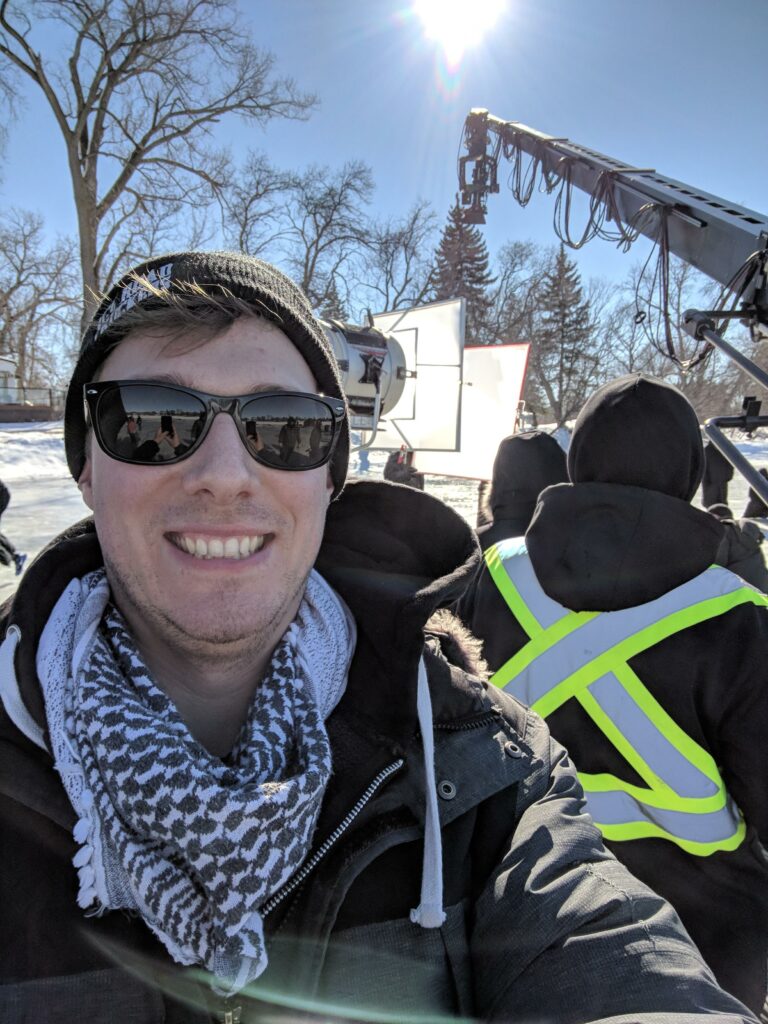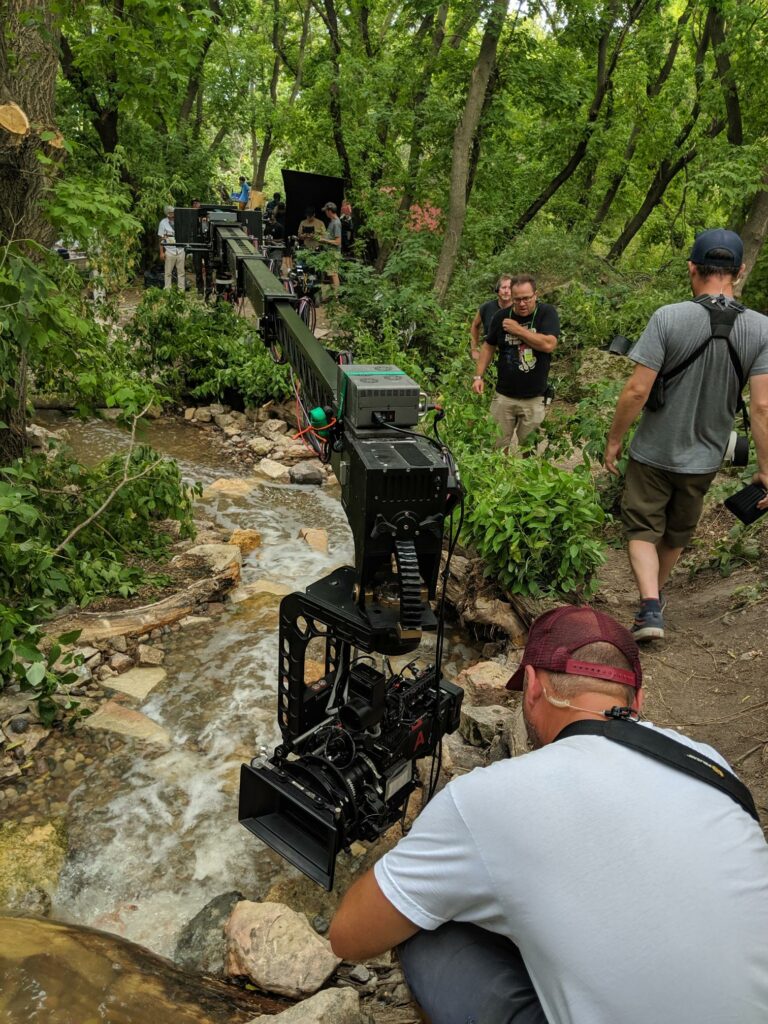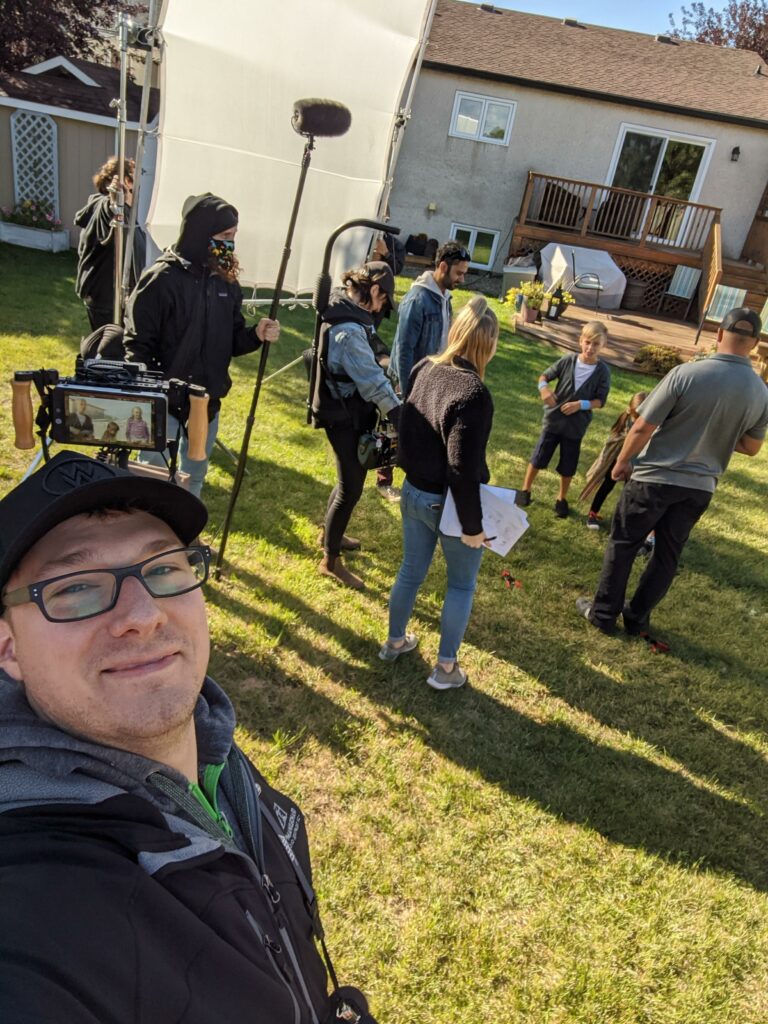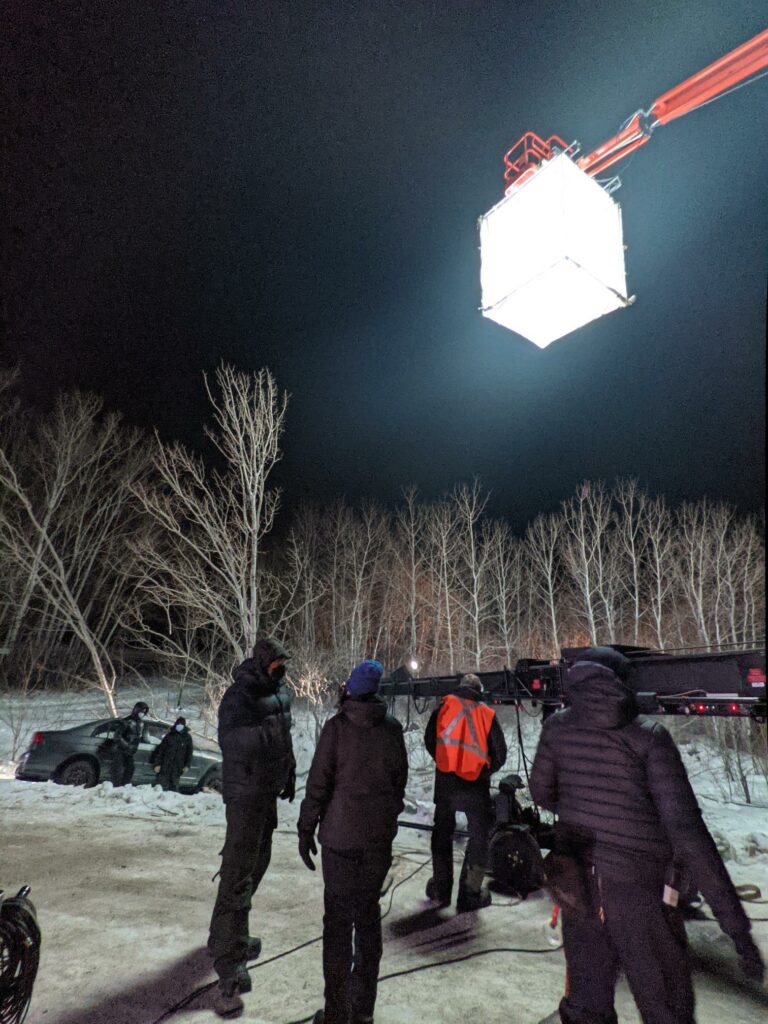
Andrew Luczenczyn is the Lead CSR for William F. White Winnipeg and a freelance cinematographer. He has worked for WFW for 5 years, working with the industry to supply the lighting, grip, cameras and specialty equipment need to shoot large films.
He also has over a decade of experience as a cinematographer, shooting 3 features, dozens of short films and many hours of documentary and television.
When and how did you start in the media production industry?
I started in high school fooling around with my friends and the family Hi-8 video camera. We would try to mimic scenes from James Bond, Lord of the Rings, movies we liked, and it just grew from there – we started editing, doing some practical effects. I fell in love with it enough to continue learning film at the U of W. I was immediately drawn to the technical and crafts- especially lighting and camera work, and in my early years I mixed doing some theatre lighting hangs and prop building with filming and cinematography. I attended a lot of FTM workshops – FTM hosted a workshop with Mark Irwin ASC; he looked at what I was doing and said I should pursue cinematography. I ended up starting to fly myself out to other workshops hosted by the Canadian Society of Cinematographers in Toronto and Vancouver, and eventually landed in LA with the Global Cinematography Institute – an intensive program run by ASC members Yuri Neyman and Vilmos Zsigmond. I started a company with my friend and director Madison Thomas, and we shot a lot of films and made lots of friends in the industry and made some great films that built a up a good reel for the both of us.

What area of the film industry do you work in now and why?
Today I work at William F. White – a large national equipment rental house. Before this I was working as a freelance cinematographer, shooting drama and reality TV. I enjoyed it a lot, but documentary and factual work was where a lot of the work was, but my heart is in scripted drama. I was shooting lots of short films and some indie features but they were not sustainable for me.
I was drawn to WFW as I heard they were opening a camera department – it was still in its infancy, but I started working there anyways. It immediately appealed to my technical side – every day I was working with lighting and dollies and cranes, and I was able to apply my knowledge and experience practically to everything I did there.
I have been able to grow with this company; I was trained in remote camera heads and cranes, then dolly repair and maintenance, and then when the timing was right started in the camera department as technician and eventually CSR.
What has been a substantial change in the industry since you started?
So many things. On an industry wide scale, LED technology has grown leaps and bounds – the amount of LED fixtures purchased by WFW in a year now is insane. When I started at WFW it was crazy to see just a few Arri Skypanels on a show, and now we put them out by the hundreds. We had 120 on The Porter for just for one set.
I think one of the best parts of my job is being involved with the growth here in Manitoba. It’s been a personal mission of mine to build up a cinema camera department locally. I grew up in my early career only dreaming of seeing and using these types of cameras and lenses, so I try to give as many opportunities as possible for anyone, new or veteran, to have hands on real access to this critical resource right here in Winnipeg.
If you could give yourself advice today to yourself in the past, what would it be?
Embrace mistakes. Take care of your body and mind. Keep learning and be curious.

What is advice you would give to someone starting off in the media production industry?
Learning electricity is by far the most underrated skill that I use almost every day. Watts, Volts, Amps, resistance, and wire gauge. Its not only essential for the lighting department but also camera. But even in my own home I use that knowledge every day. And take workshops, seek out mentorships – anything to learn the basics and find your path in this industry.
Why is learning and training important?
I guess if you don’t keep up, you get left behind. This industry is constantly evolving and growing while simultaneously it is deeply rooted in tradition – I enjoy film history, especially seeing how technical innovations over the years has changed the way films look. Steadycam, LEDs, motion control, or even older technologies like spinning mirror shutters and optical coatings have left their marks on the history of films; if you know what your looking for you can see it in the actual picture. So you kind of have to learn in both directions, looking to be ahead of the technology curve but also looking back and now why things were done a certain way.
Watching a master of lighting like Vilmos light scenes and talk through it, the way he liked to do certain techniques and having the ability to ask questions was an invaluable education to me – that time I spent at GCI was really great so I encourage people to take the risk and go out of town if its necessary for masterclasses or advanced training and bring that knowledge back to Manitoba.

What are some of the films, TV series or even books that have inspired you? How about anything new you’ve been into?
I’ve been enjoying The Great. I have a 17-month-old daughter so I have to admit I’ve been watching a lot of children programming. We’ve watched Encanto probably 30 times, but I’ve really enjoyed Bluey. Otherwise, I’ve been reading Adventures of a Young Naturalist, a David Attenborough autobiography about his early career, and The Cine Lens Manual – a technical book about cinema lenses.
Is there something about you or an interesting past experience that you’d like to share with your colleagues?
I was a Zamboni driver for 3 years and it was one of the best jobs I have had.
Is there someone within the film industry you would like to work with and why?
I’m not too sure – I don’t get star struck really. There are definitely people I enjoyed working with and would love to see them return so when I hear there are producers/directors/cinematographers or crew members returning to shoot another project I get excited about that
Where do you see yourself in ten years from now?
That’s hard to say but I’ll still be around cameras. That much I know.
